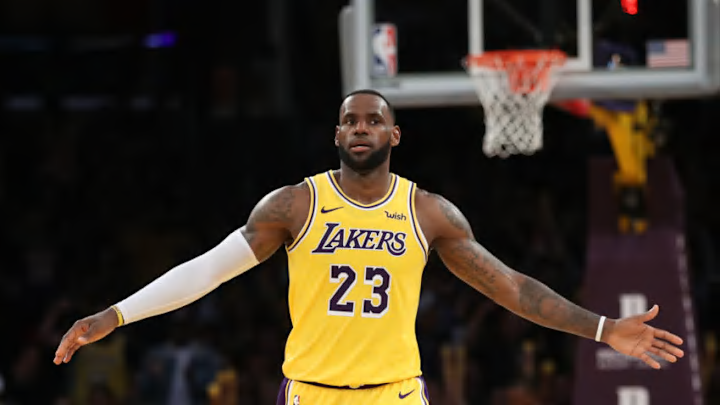
Should the Los Angeles Lakers trade LeBron James? Let’s examine the statistics and then come to a conclusion.
Towards the end of last season, Los Angeles Lakers fans across Los Angeles were enamored with the thought of LeBron James coming to Hollywood and helping bring back the championship glory to the Purple and Gold that’s been missing in LA ever since Kobe Bryant tore his Achilles. Then, on July 1st King James signed a 4-year max contract with the Lakers, causing fans of the Purple and Gold to erupt in joy.
The elation among Lakers fans lasted throughout the summer and into the early stages of Autumn. By the time Fall started wrapping its cold grip around the nation, the general consensus amid most media members was that the Lakers would probably end up anywhere between the 3rd through 6th seed out West. Many pundits also agreed that once the playoffs started, LA’s seeding wouldn’t matter, and with LeBron James doing the major lifting in the postseason for the Lakers, the Purple and Gold had a great shot of making it to the Western Conference Finals.
Then the season started on October 19th and the Lakers lost to the Portland Trail Blazers. LA then lost its next two games to Houston and San Antonio, unceremoniously beginning King James reign in Los Angeles with an 0-3 record. Over those first three games of the season the Lakers lost by a combined 19 points while shooting 28% from 3-point range. The fairy tale was over.
The Lakers now sit in 11th place in the Western Conference and with 11 games left there’s a very good chance the Purple and Gold will finish James’s first season in LA with a worse record than they had last year.
This season’s been a disaster and now just eight months after LeBron signed with the Lakers, many of the fans who were so elated that James decided to play for LA this past summer have started to suggest the unthinkable. They’ve begun to wonder if the Lakers would be better off trading LeBron James during the off-season.
Let’s look at the case for trading LeBron James and then look at the argument for keeping “The King.”
